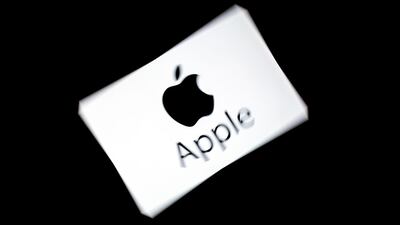Apple's developer conference that began on Monday will move the company closer to a future in which the iPhone is no longer the central cog for other products and services.
Chief executive Tim Cook and other leaders will make presentations at the Worldwide Developers Conference in San Jose, California, to unveil updates of Apple’s operating systems and a new approach to apps.
The changes will show the new generation of devices and software including Apple Watches that are more independent from iPhones, iPads with software that reduces the need for a laptop and apps that run on any device.
Growth areas such as augmented reality and personal healthcare will also be on show, insiders say.
The developer conference focuses on software but the company often includes new hardware announcements.
This year, Apple will not show off a new Apple Watch or iPhone hardware until autumn, but has considered previewing the new Mac Pro at the conference.
When Apple launched the Watch in 2015, it was positioned as the next major product after the iPhone. But sales have not reached iPhone levels and the Watch still relies on the handset.
After adding connectivity support to the device two years ago, the company will use its next software update, watchOS 6, to further break it free from the iPhone.
It will add an on-board App Store, new apps such as a calculator and voice recorder, and new messaging features.
Apple has pushed the iPad as a laptop replacement for years. But many Pro users have noted that while the hardware is capable enough, the software is still behind.
The conference will reveal new attempts to bridge that gap.
The company plans enhancements to the home screen and new features for using several apps at once to help the iPad satisfy more computing needs.
Developers will be given new tools to build iOS apps for Mac laptops and desktop computers, essentially unifying Apple’s app ecosystem.
This follows last year’s unveiling of iPad versions of Apple’s News, Voice Memos, Home and Stocks apps on the Mac.
The expectation is that single versions of all apps will eventually be able to run on every Apple device. As part of the shift, more underlying technology will also merge.
“The transition might not be finished for a couple of years, but this is the strongest push Apple has made toward the unification of its two platforms,” developer Steven Troughton-Smith said.
“Apple and developers can put more effort into one version of things instead of having to build everything twice.
“Developers can put more effort into one version of things instead of having to build everything twice.”
Apple is also ensuring its own core apps are up to date after letting some languish in favour of system-wide features.
The company is readying major revamps of the Reminders and Health apps and tweaks for Maps, Messages, Apple Books, Home and Mail.
It is also planning to merge Find my iPhone and Find my Friends into a single app.
Since becoming involved in augmented reality in 2017, Apple has added new features to its iPhone and iPad software each year.
But until it launches its AR glasses, the technology, which superimposes 3D images over views of the real world, is unlikely to take off.
At first, the headset will probably need an iPhone for certain tasks.
Internal versions of iOS 13 have begun to add technology that supports a future headset, insiders say.
Apple is unlikely to talk about this publicly at the conference, but the moves indicate the company is increasing development of the glasses, which could be on show as early as 2020.
iTunes has been the way Apple users listen to music, watch movies and TV shows, hear podcasts, and manage their devices for almost two decades.
This year, Apple is finally ready to move into a new era. The company is launching a trio of new apps for the Mac – Music, TV, and Podcasts – to replace iTunes.
That matches Apple’s media app strategy on iPhones and iPads. Without iTunes, customers can manage their Apple gadgets through the Music app.
Health care has become a fundamental part of many Apple products.
For this year, beyond the revamped Health app for iPhones, the company will push into monitoring hearing health – how loud the external environment is and how loud you are playing sound on your device or headphones.

